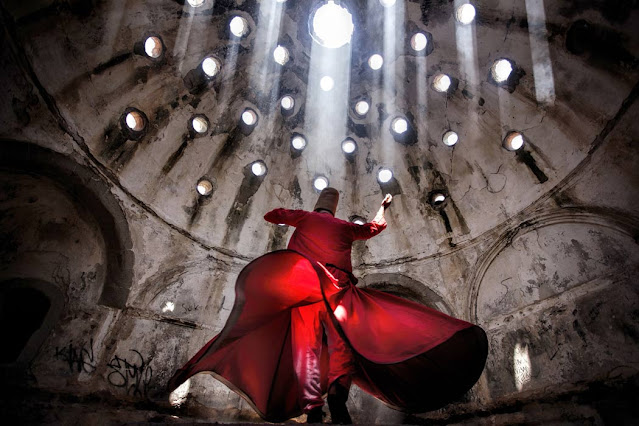7 Traditions in Turkey That Only Locals Can Understand
Due to the
ongoing blending of ancient Turkish culture and a more modern urban lifestyle,
Istanbul has its fair share of odd traditions, just like all primary
metropolitan cultures worldwide. So, if you want to visit here, please apply
for a turkey visa online.
These customs are always funny to someone who is not from or a resident of the
country, whether it be a religious belief that has adapted itself to city life
or a western influence thought that has adapted itself to Turkey.
The
Ramadan Drummer
Muslims
worldwide, including Turkey, observe Ramadan as one of the year's most critical
holy festivals. The sacred month is celebrated with a feast on the final day
after a 24-hour fast. Of course, folks back then needed to know precisely when
they would wake up in the morning to eat their meal since there were no alarm
clocks. As a result, there were Ramadan drummers in every neighbourhood who
would roam around playing their drums like a holy alarm clock. These drummers
still wander the streets of every area today, beating their drums to the dead
to wake everyone up. The drummers also request tips, and some hosts let them
into their homes in exchange for a small gift or a hot dinner.
Fortunetellers
Young Turkish ladies in love or heartbroken frequently engage in this custom since fortunetellers are considered the world's best therapists because they can tell you precisely what you need to hear. In some cafes, like Melekler Kahvesi in Beyoglu, you can find fortunetellers from all over Istanbul. Still, if you want a truly good falci, you'll need to ask a local who probably knows someone amazing and only works by appointment.
The
Circumcision Party
Any
Turkish kid getting circumcised can anticipate a large family celebration with
gifts and an extravagant costume on the big day. Even though the operation
itself is tedious, the fact that it signifies the passage from boyhood to
manhood is a reason to celebrate in any Turkish home. A cape, hat, and sceptre
are included with the circumcision outfit.
Keşkek
Festivals
A long
time is spent beating wheat and barley before boiling it to make the
traditional dish known as keskek. In Istanbul, the Keşkek Festival is a
reasonably frequent community celebration of a religious holiday or a
significant occasion, such as a wedding. Large healing potions of soup are a
regular sight since making a lot of keşkek is necessary because the holiday is
a communal event. You can only imagine how well-attended these keşkek parties
are when you see media articles bragging about how a tonne of keşkek was
consumed in a single hour.
Expressive
Car Honking
For a city
afflicted by traffic, we may argue that Istanbul's official soundtrack is car
honking, and most locals have grown numb to the constant noise. However,
occasionally numerous automobiles honk at once, which is very loud and
annoying. If you've lived in Istanbul for a time, you'll be familiar with this
sound as a tradition that indicates marriage or a person leaving soon to finish
their military service. The general rule is that a wedding occurs if white
gauze is tied to the car mirrors, and an army service send-off happens if young
men hang out the windows or the roof.
Melting
Lead Ceremony
The evil
eye, or the idea that other people's ill energy (often brought on by jealousy)
passes from their eyes into your life and causes bad luck, is a belief that is
extremely popular in Turkey. A trendy ceremony involves melting lead in
addition to the glass evil eye that is sold everywhere in various forms and
sizes. An expert visits your home and forces you to sit at a table covered in a
cloth. She then melts lead and violently pours the molten lead into cold water
with a spoon, causing the hot information to explode and scatter the lousy
energy surrounding you. The little pieces of information that create evil eyes
when they come in contact with the water can be kept.
Christmas
Decorations for the New Year
Since
Turks do not celebrate Christmas at all, it is extraordinary that Christmas
decorations are everywhere in Istanbul on New Year's Day. We're not sure when
that happened, but Christmas decorations Santa Claus and Christmas
trees—started to serve as harbingers of the New Year as opposed to the
Christian celebration of Christmas. Even if nothing happens on December 24,
it's always odd to see enormous Santa Clauses peering at you at malls and
Christmas trees and lights around you in Christmas-appropriate colours and
shapes.
If you
want to explore Turkiye and enjoy its festivals, this is the time to apply for
a turkey
e visa online.







Comments
Post a Comment